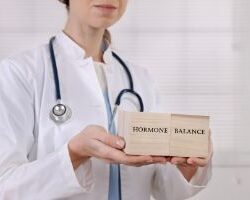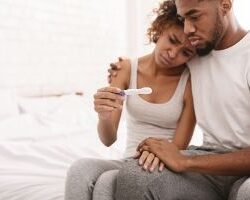Endometriosis is a painful disorder in which the endometrium, the tissue that normally lines the inside of the uterus, spreads to your ovaries, bowel or the tissue lining your pelvis. When this endometrial tissue gets displaced, it may cause cysts known as endometriosis. When these cysts grow on the lining of the abdomen and pelvis, scarring develops that may cause blockage of the ovaries or tubes.
Symptoms
The primary symptom of endometriosis is pelvic pain, often associated with your menstrual period. Woman with endometriosis typically describe menstrual pain that is far worse than usual and report their pain has increased over time. Common signs of endometriosis include:
- Pelvic pain and cramping may begin before and extend several days into your menstrual cycle and may include lower back and abdominal pain.
- Pain during or after intercourse.
- Pain associated with bowel movements or urination, usually during your cycle.
- Occasional heavy periods or bleeding between your menstrual cycles.
- Fatigue, diarrhea, constipation, bloating or nausea, especially during your cycle.
- Infertility, depending on the severity of the endometriosis.
Ways to Diagnose Endometriosis include:
- A pelvic examination – Your doctor will check for abnormalities surrounding your pelvis, such as cysts on your reproductive organs or scars behind your uterus.
- An ultrasound – High-frequency sound waves to create images that will identify cysts.
- Laparoscopy – A surgical procedure that allows your doctor to look inside the abdominal cavity with a narrow scope and provide information about the location, extent and size of the endometrial implants.
Effects on Fertility
The main complication of endometriosis is impaired fertility. Of the 5-10% of all women who have endometriosis, most are not infertile, however 30-40% of infertile women have some form of endometriosis.
In order for pregnancy to occur, an egg must be released from an ovary, travel through the fallopian tube, become fertilized by a sperm cell and attach itself to the uterine wall to begin development. Endometriosis often obstructs the tube and keeps the egg and sperm from uniting and can also cause damage to the sperm or egg.
It is important to note that many women with mild to moderate endometriosis can still conceive and carry a pregnancy to term. Because this condition has been known to worsen over time, women with endometriosis should not to delay having children.
Treatment
Birth control pills usually help to relieve pelvic pain experienced by most women, including those with endometriosis. If your symptoms continue while you are on birth control pills, the next step is laparoscopy. Not only will laparoscopic surgery provide a definitive diagnosis of endometriosis, you can also have the painful cyst removed during the procedure.
Although, surgical treatment for endometriosis has been shown to improve fertility, women who are not ready to become pregnant are encouraged to resume the pill to prevent endometriosis from recurring. Even if you are not yet ready to try to conceive, if you suspect you have endometriosis, you should call The Fertility Institute today and schedule a consultation. This is particularly important if you are over 30 or if you have “decreased ovarian reserve.” Ovarian reserve is most easily measured with a simple blood test called AMH (anti mullerian hormone).
At The Fertility Institute, we individualize treatments for endometriosis associated with infertility based on factors such as the severity of the endometriosis, its location in the pelvis, your age, the length of your infertility, the status of your ovarian reserve and what pain you are experiencing along with other symptoms.
Although pregnancies do occur naturally in women with endometriosis, pregnancy rates are superior with IVF. Women with low ovarian reserve who are unable to conceive with IVF using their own eggs, still have an excellent prognosis with donor egg IVF. To discuss all options with one of our fertility specialists, call us today at (985) 892-7621.



